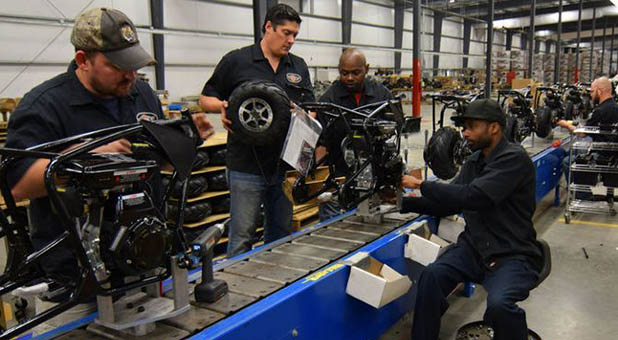Work Is Part of God’s Plan for Human Community
From the very beginning, God set humans to work. That original design was soon to be tainted by the destruction of sin, but that by no means marked the story’s end.
Even after the garden, Adam and Eve were still made in the image God. They were still co-creators with a strong stewardship mandate. Most importantly, a Savior was soon to come.
In a recent talk at Southeastern Baptist Theological Seminary, Greg Forster reminds us of this basic human calling, and the range of ways the gospel has redeemed and reoriented our work, even as we continue to work and serve in a fallen world.
“The gospel does not point us away from work,” he says. “The gospel actually points us to a new understanding of work: a deeper reality … God put Adam in the garden to work and protect it—to cultivate it and protect it. We are here to love God and love each other primarily by doing good work.”
Our work is not just good, but a central part of God’s “restoration of the whole cosmic project,” Forster explains. Work is part of God’s plan for human community, and when we invite heaven into the process, we allow the gospel to restore and accelerate the transformation that God set into motion back in the garden:
Creation was made to be dynamic. It was a project given to humanity. Something to be unfolded, developed, improved upon. God gave us this wild, untamed world, and He said, “Go transform it with your work. Turn it into something beautiful that glorifies the Father, Son and Holy Spirit. Make it glorify the love of God more and more and more — … an infinite, never-ending project of taking the wild and untamed cosmos that was given to Adam and Eve … and transforming it more and more for eternity to glorify God.
This is not just a calling for us, as individuals. It is something we get to embark upon as a community of believers. Which is why work that serves neighbor and community must be always be remembered as such.
We do not pursue our economic activities in worship or pursuit of the idols of self—whether status or power or material prosperity. We pursue those activities out of love and joy and the pleasure of participating in what For the Life of the World describes as a “great and mysterious collaboration” with the Father and the people of God.
As Forster reminds us, “Jesus did not come only to save individuals”:
In the cross, by the blood of the cross, Christ is reconciling everything in heaven and earth to God. Not just isolated individuals who follow Christ. It’s a restoration of the whole cosmic project. And we see in the Book of Revelation what a beautiful and glorious thing it is … when all things in heaven and on Earth are reconciled to their Creator through a redeemed people and their stewardship of the world.
… Humanity is made to work together … We’re made to be in relationship with each other and do this together. And God cares not only about each person’s individual work but about how we connect our work to each other. And that’s where economic exchange and economic systems begin … Economic exchange is simply a way of serving each other with our gifts, or at least, that’s what it’s supposed to be.
This is a key component of our social responsibility: to show and demonstrate and bear witness to what work and economic exchange are supposed to be. To return to the garden, as Jesus invited us to do, and by the power and freedom of the Holy Spirit, to participate in God’s restoration of all things.
Joseph Sunde is a writer and project coordinator for the Acton Institute, serving as editor of the Letters to the Exiles blog and content manager of the Oikonomia channel at Patheos.com. He is the founder of Remnant Culture and was a longtime contributor to AEI’s Values & Capitalism project.
This article was originally published at Acton.org. Used with permission.
















































